From gender-based lockdowns to immunity cards: How the world is handling COVID-19 restrictions
Some Australians have been quick to complain about the restrictive nature of the nation’s lockdown, but measures in places like Russia and Peru make ours look like a cakewalk.
While Australia dials back its COVID-19 restrictions many countries around the world are still living under strict conditions, some with bizarre regulations such as gender-based lockdowns and digital passes to leave home.
This weekend will be a watershed moment in Australia’s fight against the deadly coronavirus as many states begin to allow increased freedoms to its residents.
Some have been quick to complain about the restrictive nature of the nation’s lockdown but measures in places like Russia and Peru make ours look like a cakewalk.
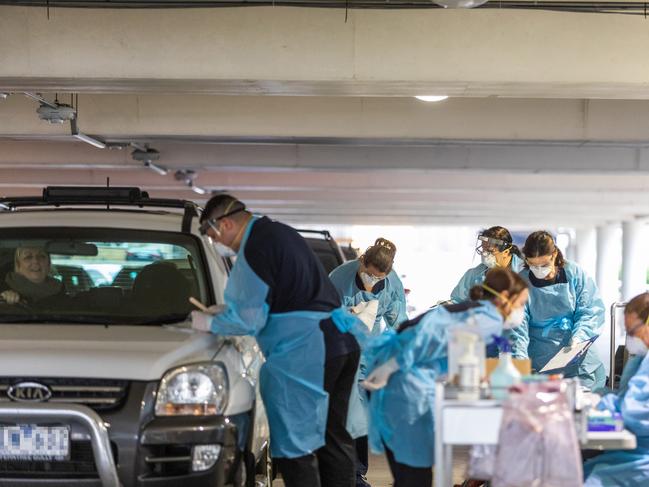
Other countries, like Sweden and Belarus have taken a lax approach with few or no restrictions.
Professor Lyn Gilbert, an infectious disease physician from the University of Sydney’s Marie Bashir Institute for Infectious Diseases and Biosecurity told News Corp Australia’s response to the virus had been “pretty successful” compared to others.
“We look with interest in what other countries have done but our situation in Australia is different for a lot of reasons, so I think we’ve got to work our way through all the options here,” Prof Gilbert said.
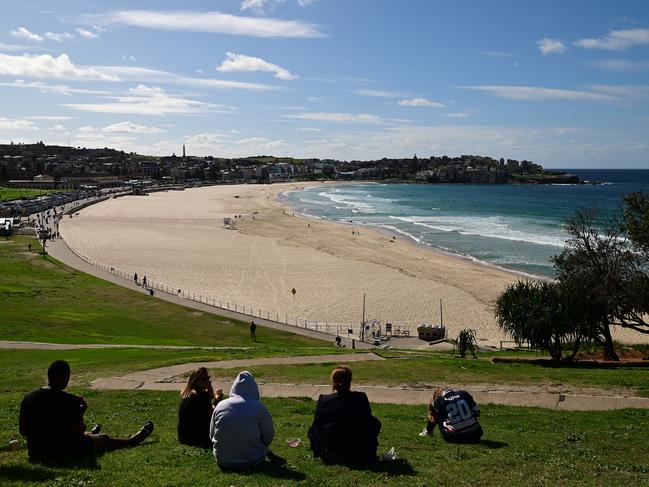
Chile has been the first country to introduce an immunity card to residents, enabling them to re-enter the community but Prof Gilbert said it was a “dangerous strategy” and the presence of antibodies doesn’t mean someone is immune.
This sentiment was echoed by Professor Raina MacIntyre who is head of the Biosecurity Research Program at UNSW Sydney’s Kirby Institute.
“I think it’s far too premature. We don’t know enough about the immunology. We’ve only got follow up data at the longer term of four months for people,” Prof MacIntyre said.
“We need at least 12 months of data on immunity.”
Prof MacIntyre added Australia had been “flexible, responsive and adapted well” to the pandemic.
PERU
Peru passed a controversial lockdown measure whereby men and women were only allowed out of their homes on alternating days.
The country was forced to back pedal on the regulation just eight days after it was installed in late March.
Under the restrictions, men were only permitted to leave home on Mondays, Wednesdays and Fridays; while women could do so Tuesdays, Thursdays and Saturdays. On Sundays, no one was allowed out.
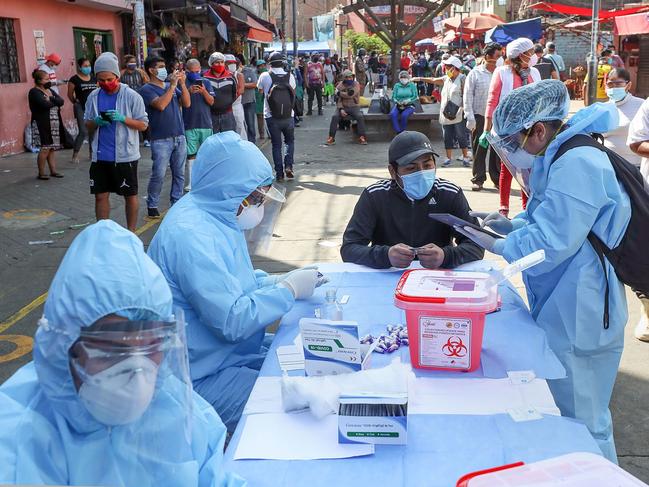
As of Friday, the country had recorded more than 36,000 cases of COVID-19 and 1051 deaths with more than 10,000 patients recovering, according to data site Worldometer.
The country’s borders are currently closed and President Martin Vizcarra extended its quarantine past the original end date of April 26 to May 10.
JAPAN
Japan, unlike its Western counterparts, chose not to impose fines or other penalties to encourage people to adhere to social distancing and other restrictions.
Instead, the country asked its residents to reduce their contact with other people by 80 per cent, and recommended businesses close but they can choose to remain open.
Japan recorded more than 14,000 cases and 430 deaths, as at the time of writing.
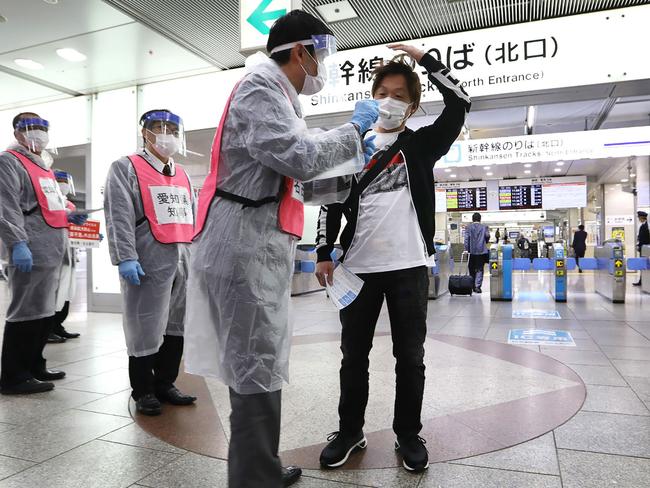
While previously held up as an example of an effective response to the virus, the country has been criticised for its reluctance to commit to widespread COVID-19 testing and has only conducted 1309 tests per million people.
This is compared to 22,104 test per million people in Australia and 27,906 in New Zealand.
The country’s hospitals are suffering due to a surge in cases and the Japanese Association for Acute Medicine has said the collapse of the emergency care system is “already here”.
SWEDEN
Sweden has bucked the trend of its European neighbours and refused to impose strict conditions on its people to combat the deadly COVID-19.
Businesses, including restaurants, have remained open and children are continuing to attend school – although older students are doing distance education, but large events have been banned.
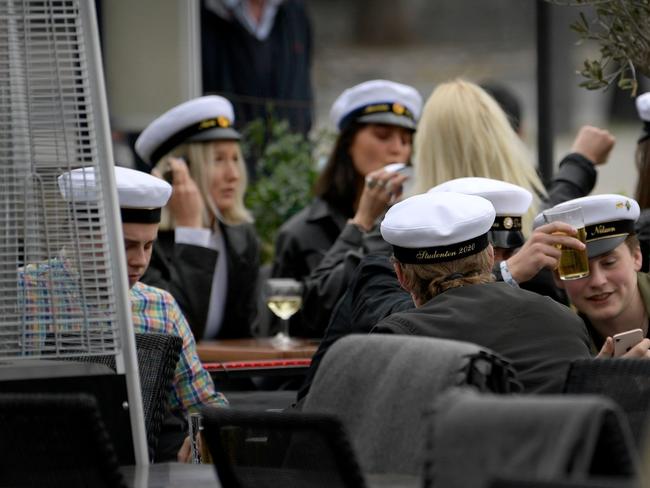
Restaurants are required to observe social distancing and several forced to close after failing to adhere to the rules – but photos of people continuing to dine out shocked the world with the pastime off the cards for many.
Sweden recorded 21,092 virus cases as of Friday and 2586 deaths representing 256 deaths per one million people.
Its neighbours Finland, Norway and Denmark - which have imposed tougher restrictions - have suffered 38, 39 and 78 deaths per one million people respectively.
RUSSIA
Russia’s capital Moscow has imposed a strict lockdown with draconian measures which will remain in place until May 13 but restrictions around the country are expected to begin to lift on May 12.
Moscow residents must apply for a digital pass to leave their homes due to medical emergency, shopping for food and medicine, or to travel to essential jobs.
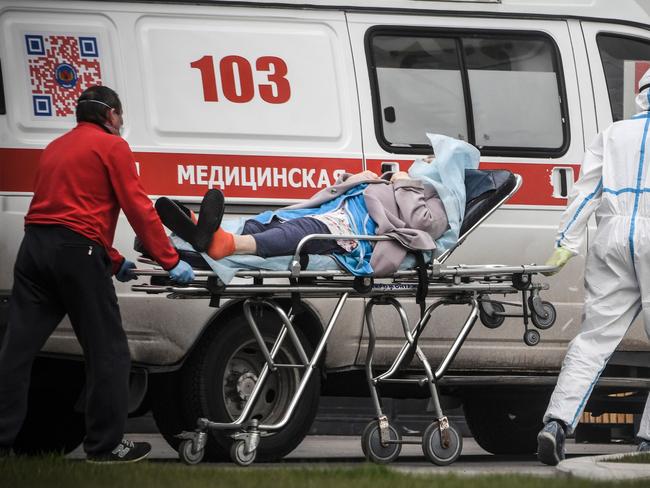
Pedestrians are exempt from needing the pass provided they are walking to a supermarket or exercising a pet within 100m of their home.
The passes for leaving home to shop are valid for one day and residents can only apply for two per week.
Russia has suffered more than 106,000 COVID-19 cases, as of Friday and more than 1000 people have died.
CHILE
Chile – which has more than 16,000 cases and 227 deaths - has been the first country to introduce immunity cards to residents who have successfully recovered from COVID-19 so they are able to re-enter the community and return to work.
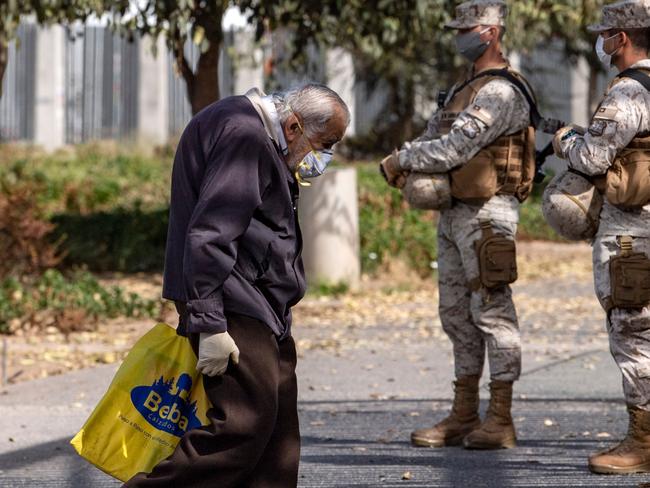
Germany and the US have also been considering the measure, which would be based on antibody testing.
Despite the measures, the World Health Organisation (WHO) has released guidance stating there is there is no evidence previously infected people are immune.
WHO also advised there needed to be more research done on antibody testing capabilities, which thus far, is not accurate according to the health body.
MORE NEWS
P-plate rider suspended til 2032 ‘clocked’ at 247kmh
Captain Cook tweet no big issue, says Premier
PM’s Twiggy takedown: ‘I listen to the experts’
‘Any of you f*** this up, deal with me’: Bellamy ‘bans’ social media in epic spray
BELARUS
Belarus is yet to impose any restrictions on its population in response to COVID-19, with restaurants, cafes and cinemas remaining open. Sporting matches are also still going ahead.
President Alexander Lukashenko has brushed off the virus despite thousands of Belarussians being infected, and even encouraged people to drink vodka and visit saunas to fight off infection.
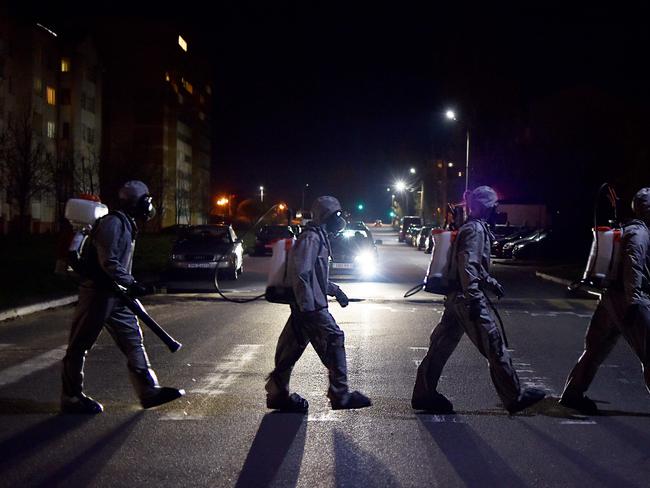
“When you come out of the sauna, not only wash your hands, but also your insides with 100 millilitres [of vodka],” Lukashenko said, according to the UK Times.
The Eastern European country had more than 14,000 cases as of Friday and 89 deaths, representing nine deaths per million people.
Originally published as From gender-based lockdowns to immunity cards: How the world is handling COVID-19 restrictions
